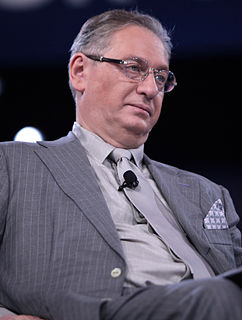A Quote by Robert C. O'Brien
While some national security advisers have eschewed the Scowcroft Model and sought to 'operationalize' the NSC or pursue their own policy agendas without regard to the cabinet, the president and the country are best served by the NSC's adherence to its intended 'honest broker' advisory role.
Related Quotes
The National Security Council assists the president by ensuring that he receives the best views and options from the various departments and agencies on any given issue. The ultimate policies are, as they should be, then decided upon by the president - not by the NSC staff or the national security adviser.
The fact that some former national security officials challenge the policy wisdom of the order, while other national security officials - most notably those of this [Donald Trump's] administration - support it, merely demonstrates that these are policy disputes that the judiciary is both ill-equipped and constitutionally barred from arbitrating.
We have a media that goes along with the government by parroting phrases intended to provoke a certain emotional response - for example, "national security." Everyone says "national security" to the point that we now must use the term "national security." But it is not national security that they're concerned with; it is state security. And that's a key distinction.
When you're offered a job to serve your country, you step back and assess. And once I spoke with President Trump and told him what I thought I needed to be successful - which was to be a Cabinet member; to be on the National Security Council, where I could be a part of the policy decisions; and to be able to say what I wanted to say - how do you not do that job? He was incredibly supportive. He's continued to be. I love a good challenge, and this certainly has been that.
President's personal staff has a unique role. They're his intimate personal advisers, and the tradition and the precedent has been, even when I was national security adviser, that people in that position do not testify before the Congress. They talk to the Congress. They have meetings with the Congress.






























